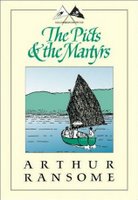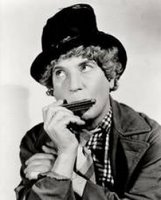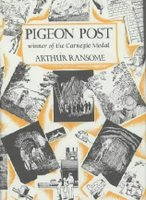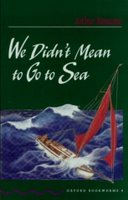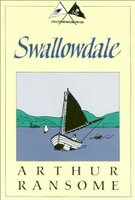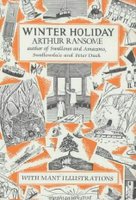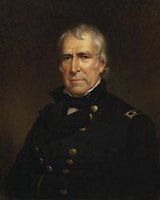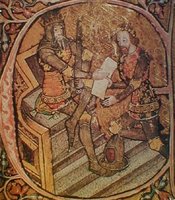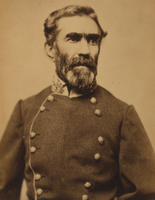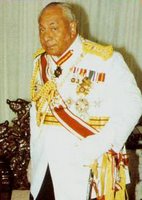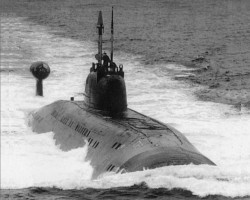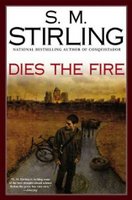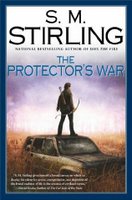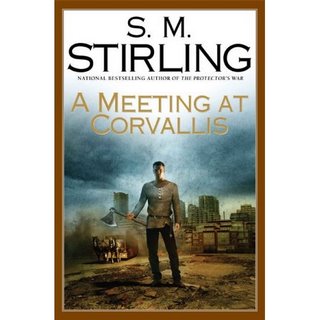In August, 1814, during the
War of 1812, the British took Washington, burning many of the government buildings and forcing President Madison to flee. They then turned their attention north toward the port city of Baltimore, Maryland. The plan was to conduct a combined operation, attacking Baltimore from both land and sea. However, ships entering Baltimore's harbour would first have to pass
Fort McHenry, on the west side of the harbour's entrance.
Accordingly, on the morning of 13 September
*, the British ships, armed with mortars and the new Congreve
rockets, began a 25-hour
bombardment of the fort. The British weapons weren't very accurate, and the fort's guns didn't have the range to reach the ships, so little damage was done, though four Americans were killed and 24 were wounded.
The British army had already been stopped a couple miles outside the city and were waiting for assistance. When the fleet failed to pass Fort McHenry, they withdrew, leaving the city in American hands.
One of the witnesses to the naval bombardment was an American lawyer named Francis Scott
Key. A friend, Dr William Beanes, had been taken prisoner by the British for allegedly harbouring British deserters, and
Key had gone out to the British flagship to try to arrange for his release. The British refused at first, but finally agreed to release him; in the meantime, though, Key had heard details of the British plans, and was therefore detained until after the battle. He and Dr Beanes observed the nightlong bombardment (by some accounts, from on board HMS
Minden), and were released on the 16th.
In addition to being a lawyer, Key was also a poet, and before his release he had already started writing a poem about the battle, called "Defence of Fort M'Henry." He finished the poem after being freed, and gave the poem to his brother-in-law, Judge Joseph Nicholson. The judge saw that the words of the poem fit the tune of an old English drinking song, "To Anacreon in Heaven," and when the poem was published a few days later this fact was noted on the printed broadsides.
The poem itself? Four stanzas, in anapestic tetrameter. It goes like this:
O say, can you see, by the dawn's early light,
What so proudly we hailed at the twilight's last gleaming?
Whose broad stripes and bright stars, through the perilous fight,
O'er the ramparts we watched, were so gallantly streaming!
And the rockets' red glare, the bombs bursting in air,
Gave proof through the night that our flag was still there:
O say, does that star-spangled banner yet wave
O'er the land of the free and the home of the brave?
On the shore, dimly seen thro' the mist of the deep,
Where the foe's haughty host in dread silence reposes,
What is that which the breeze, o'er the towering steep.
As it fitfully blows, half conceals, half discloses?
Now it catches the gleam of the morning's first beam,
In full glory reflected, now shines on the stream
'Tis the star-spangled banner. Oh! long may it wave
O'er the land of the free and the home of the brave!
And where is that band who so vauntingly swore
That the havoc of war and the battle's confusion
A home and a country should leave us no more?
Their blood has washed out their foul footstep's pollution.
No refuge could save the hireling and slave
From the terror of flight, or the gloom of the grave,
And the star-spangled banner in triumph doth wave
O'er the land of the free and the home of the brave.
Oh! thus be it ever, when freemen shall stand
Between their loved homes and the war's desolation,
Blest with vict'ry and peace, may the Heav'n-rescued land
Praise the Pow'r that hath made and preserved us a nation.
Then conquer we must, for our cause is just,
And this be our motto - "In God is our trust."
And the star-spangled banner in triumph shall wave
O'er the land of the free and the home of the brave.
Isaac Asimov made some good
comments on the poem, which now, of course, is known as "The Star-Spangled Banner."
* 192 years ago today, which is what prompted me to write about this.
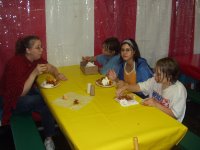 Another difference, I hope, will be the weather. Last year it rained constantly, starting about the time we arrived at the fairgrounds, and we were doing a pretty good impression of semi-drowned rats as we ate our lunch inside the tent some thoughtful vendor had provided. So far, the forecasts say good weather for the weekend....
Another difference, I hope, will be the weather. Last year it rained constantly, starting about the time we arrived at the fairgrounds, and we were doing a pretty good impression of semi-drowned rats as we ate our lunch inside the tent some thoughtful vendor had provided. So far, the forecasts say good weather for the weekend....


